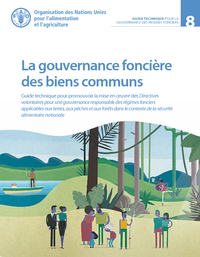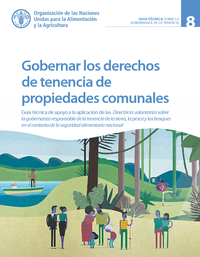La gouvernance foncière des biens communs
À travers le monde, des millions de personnes dépendent des ressources naturelles telles que les terres, les pêches et les forêts, qui sont utilisées collectivement comme des biens communs. Les biens communs sont essentiels à la culture, à l’identité et au bien-être. Source de nourriture et de revenus, ils agissent comme un important filet de sécurité, surtout pour les populations les plus marginalisées et les plus vulnérables.





